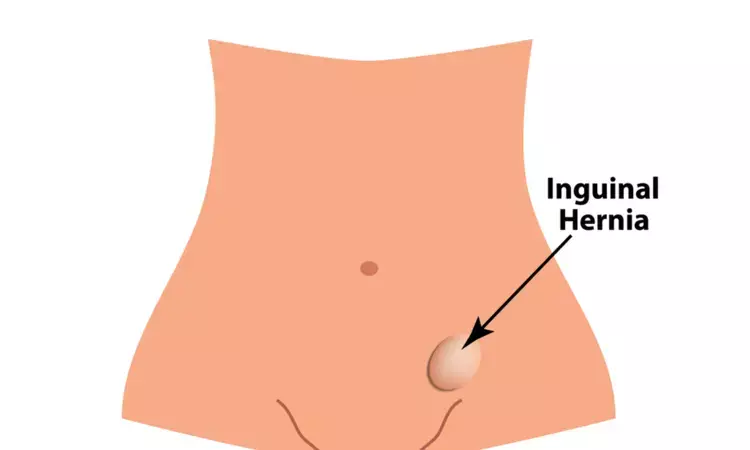- Home
- Medical news & Guidelines
- Anesthesiology
- Cardiology and CTVS
- Critical Care
- Dentistry
- Dermatology
- Diabetes and Endocrinology
- ENT
- Gastroenterology
- Medicine
- Nephrology
- Neurology
- Obstretics-Gynaecology
- Oncology
- Ophthalmology
- Orthopaedics
- Pediatrics-Neonatology
- Psychiatry
- Pulmonology
- Radiology
- Surgery
- Urology
- Laboratory Medicine
- Diet
- Nursing
- Paramedical
- Physiotherapy
- Health news
- Fact Check
- Bone Health Fact Check
- Brain Health Fact Check
- Cancer Related Fact Check
- Child Care Fact Check
- Dental and oral health fact check
- Diabetes and metabolic health fact check
- Diet and Nutrition Fact Check
- Eye and ENT Care Fact Check
- Fitness fact check
- Gut health fact check
- Heart health fact check
- Kidney health fact check
- Medical education fact check
- Men's health fact check
- Respiratory fact check
- Skin and hair care fact check
- Vaccine and Immunization fact check
- Women's health fact check
- AYUSH
- State News
- Andaman and Nicobar Islands
- Andhra Pradesh
- Arunachal Pradesh
- Assam
- Bihar
- Chandigarh
- Chattisgarh
- Dadra and Nagar Haveli
- Daman and Diu
- Delhi
- Goa
- Gujarat
- Haryana
- Himachal Pradesh
- Jammu & Kashmir
- Jharkhand
- Karnataka
- Kerala
- Ladakh
- Lakshadweep
- Madhya Pradesh
- Maharashtra
- Manipur
- Meghalaya
- Mizoram
- Nagaland
- Odisha
- Puducherry
- Punjab
- Rajasthan
- Sikkim
- Tamil Nadu
- Telangana
- Tripura
- Uttar Pradesh
- Uttrakhand
- West Bengal
- Medical Education
- Industry
In total extraperitoneal inguinal hernia repair, placing drainage tube improves postoperative recovery

In total extraperitoneal (TEP) inguinal hernia repair, placing drainage tube is a simple and feasible traditional surgical treatment suggests a recent study published in the BMC Surgery
Although laparoscopic total extraperitoneal (TEP) inguinal hernia repair has the advantages of less bleeding, less trauma, less pain, and fast recovery, there are several issues that need to be addressed. This study aims to evaluate the effectiveness of preperitoneal closed‑suction drainage on reducing postoperative complications in TEP inguinal hernia repair.
A retrospective analysis of 122 patients who underwent TEP inguinal hernia repair between June 2018 and June 2021 was performed. The patients were divided into the drainage group and the non-drainage group according to whether the drainage tube was placed or not. Clinical data, surgical procedures and outcome of these patients were collected and analyzed to assess the effectiveness of drainage.
Results
• A total of 122 patients undergoing TEP surgery were screened, of which 22 were excluded. Most of the patients were male with right indirect inguinal hernia.
• There was no difference in the mean length of hospital stay between the two groups. Postoperative pain was alleviated by preperitoneal closed‑suction drainage 24 h after operation (p = 0.03).
• The rate of complications such as scrotal edema, seroma and urinary retention in the drainage group was significantly lower than that in the non-drainage group (p < 0.05). Multivariate regression analysis showed that drainage was beneficial to reduce postoperative complications
• In addition, it was worth noting that in subgroup analysis, patients with hernia sac volume > 10 cm3 might receive more clinical benefits by placing drainage tube.
In total extraperitoneal (TEP) inguinal hernia repair, placing drainage tube is a simple and feasible traditional surgical treatment, which can promote postoperative recovery without increasing the risk of infection, especially in patients with large hernia sac volume.
Reference:
Wu, G., Shi, D., Chen, M. et al. Laparoscopic total extraperitoneal (TEP) inguinal hernia repair with preperitoneal closed-suction drainage reduced postoperative complications. BMC Surg 23, 14 (2023). https://doi.org/10.1186/s12893-022-01900-9
Dr. Shravani Dali has completed her BDS from Pravara institute of medical sciences, loni. Following which she extensively worked in the healthcare sector for 2+ years. She has been actively involved in writing blogs in field of health and wellness. Currently she is pursuing her Masters of public health-health administration from Tata institute of social sciences. She can be contacted at editorial@medicaldialogues.in.
Dr Kamal Kant Kohli-MBBS, DTCD- a chest specialist with more than 30 years of practice and a flair for writing clinical articles, Dr Kamal Kant Kohli joined Medical Dialogues as a Chief Editor of Medical News. Besides writing articles, as an editor, he proofreads and verifies all the medical content published on Medical Dialogues including those coming from journals, studies,medical conferences,guidelines etc. Email: drkohli@medicaldialogues.in. Contact no. 011-43720751


